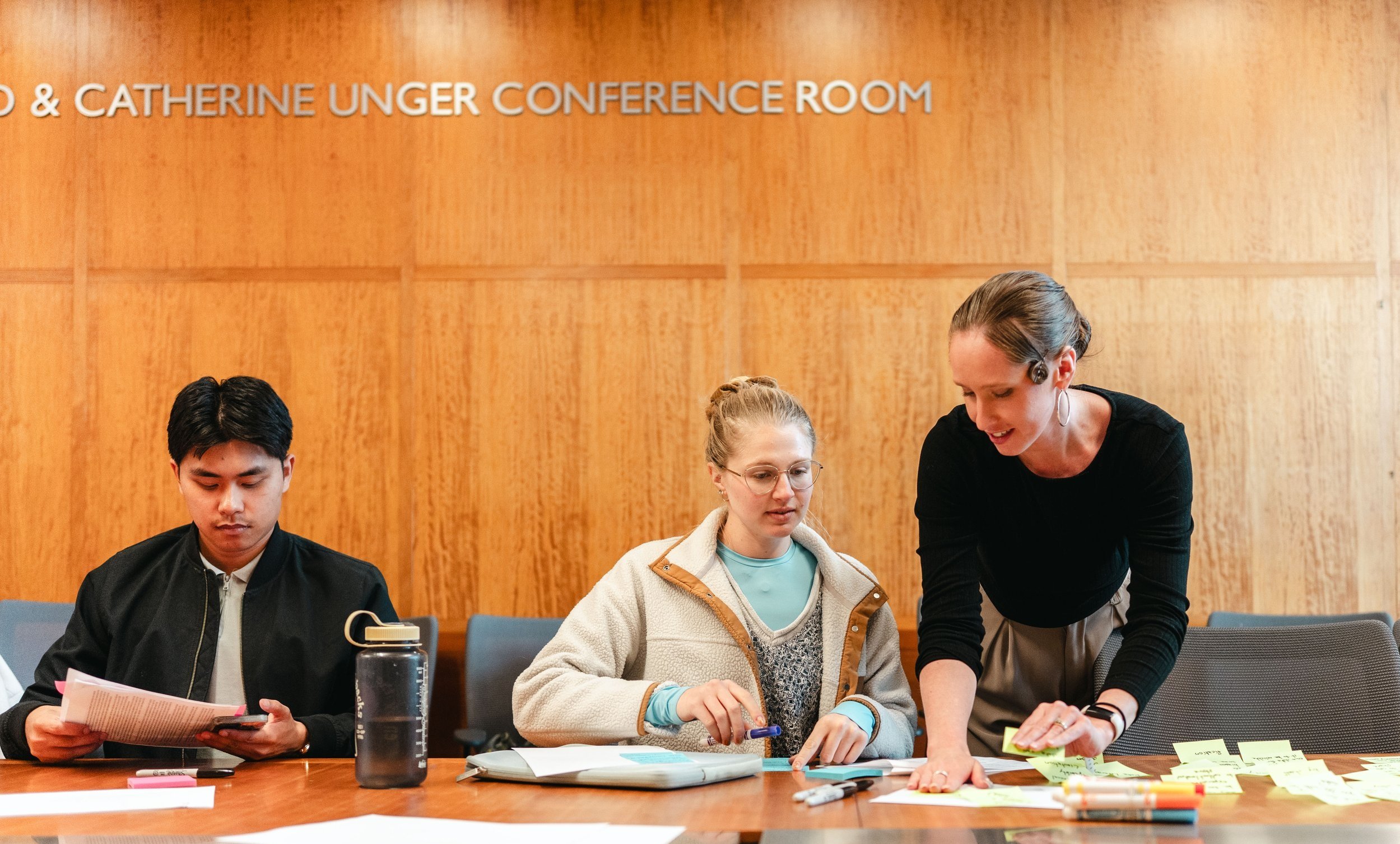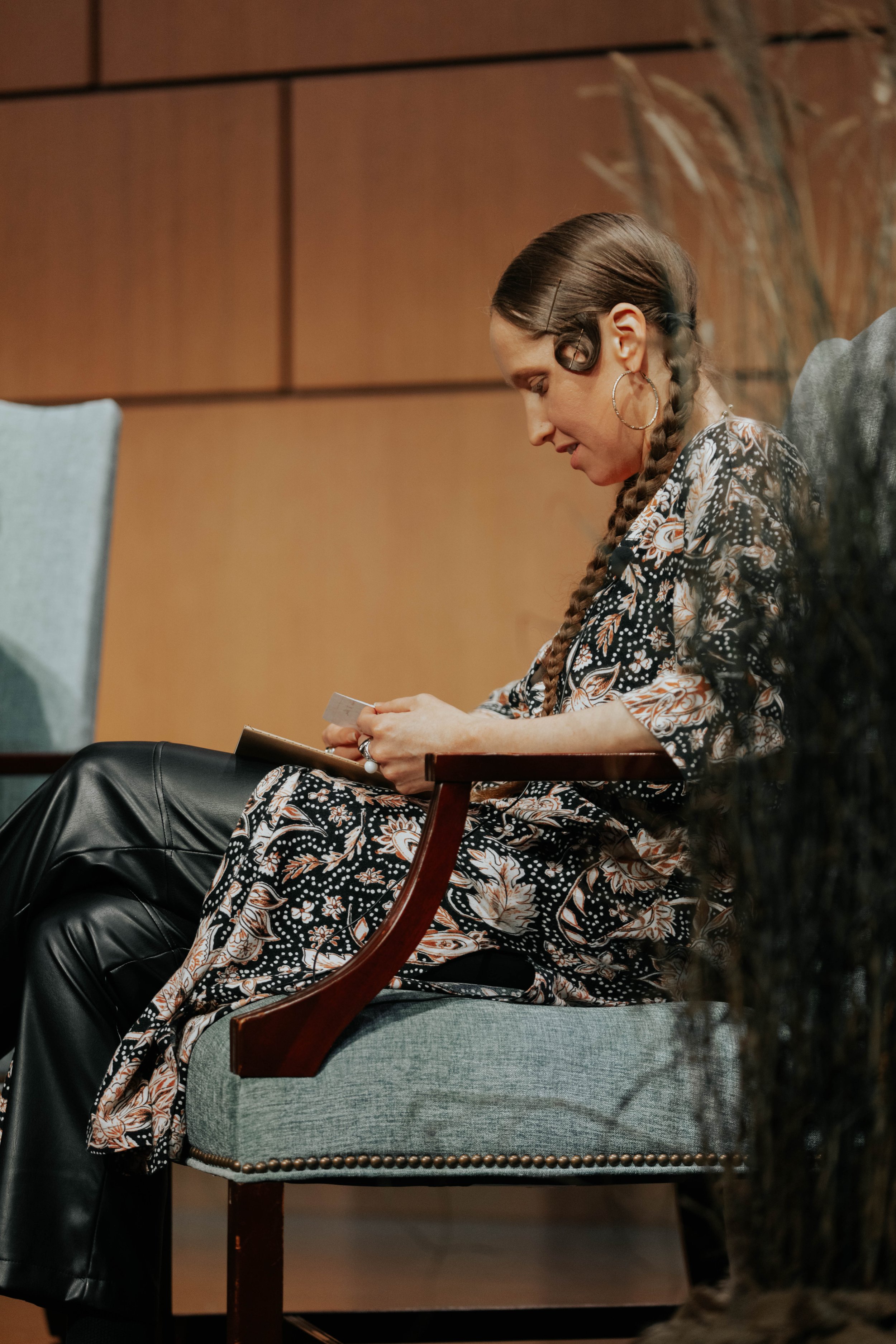
Facilitation & learning meets research & design.
Alumnus of award-winning design, innovation, and social impact teams, Ariel animates research, insights, and learning experiences for all audiences. A seasoned human-centred design professional, Ariel is a previous recipient of Fast Company’s Top 10 Ideas in Politics and Policy. Ariel has worked extensively with artists, designers, scientists, urban planners, policy makers, community-based researchers, and scholars from around the world to better engage audiences with efforts related to reimagining ecological and human futures.
“Ariel leads with grace and compassion, creating a sense of safety and support with team members, clients and the communities she uplifts. Working with her has been a journey of growth and inspiration.”
An interdisciplinary designer, facilitator, and researcher, Ariel bridges technical design expertise with cross-cultural communication and care-centered approaches to engaging with people. She is powered by robust research and development methods, humane project management skills, creative communication, and deep emotional intelligence.
Most recently, Ariel served at New York University as the first Human Rights and Regenerative Design Fellow with the More-Than-Human Life (MOTH) Program and Future of Rights and Governance (FORGE) Program at NYU School of Law Center for Human Rights and Global Justice. Ariel was previously the Director of Design Anthropology and Design Practice Lead at Canada’s leading innovation district - MaRS Discovery District, where she established new internal and public programming to better engage Canadians around topics of social innovation and environmental conservation. This included a major effort to reorganize MaRS’ internal teams toward a new collective impact program, called Mission from MaRS. Ariel facilitated all levels of employees at the organization to internally develop the program and fundraise toward multi-million dollar impact targets, followed by public engagement toward the program’s launch and staffing for the program’s ongoing impact. As the Design Practice Lead, Ariel provided mentorship and quality oversight to a bench of over 25 practitioners.
In Toronto, has also collaborated with Monumental Projects in support of community-based research and design works that inform emerging policies, upcoming urban developments, and the arts sector. In these projects, community conversations and art-making are often central to the collaborative research and storytelling process.
Ariel is passionate about facilitating meaningful participation, and developing tools and materials that elevate all levels of experience (somatic, visual, intellectual), while introducing regenerative and reparative concepts and practices into the worlds of design, education, and policy. Ariel has brought learning experiences to both local communities and global stages.
Ariel founded and is the principal researcher for a peer-to-peer learning program, called Beyond HCD, a more than human-centred design exploration (learn more at beyondhcd.com). Now focused on “More Than Human Design,” Ariel holds a Master of Global Affairs (MGA) from University of Toronto, and a Bachelor of Arts (BA) in Interdisciplinary & International Studies from University of Arizona.
Read the full story on #UXRConf Preview: Meet Ariel Sim
A Q&A on her career journey and what researchers can learn from design
March 2019
How did you get started in design research?
I wouldn’t call it an accident, but we definitely weren’t using the words “design research” and “user experience” where I started my career.
I worked for the Bureau of Applied Research in Anthropology (BARA) right out of university. I went to the University of Arizona and had finished an interdisciplinary degree with a mix of course work in business, anthropology, political science, creative arts, entrepreneurship, and economics. Anthropology spoke to me the most of all the disciplines I worked with in my degree and I did most of my thesis through the School of Anthropology.
While in school and then for a few years after, I was a research technician at BARA. We did something called community action research or community-based participatory research. In that model, anthropologists don’t observe and record observations about culture — they participate inside of communities and help to create interventions that lift those communities up. There’s a big focus on agency and on understanding the very specific contexts and dynamics of a community before coming up with solutions (sounds a lot like human-centred design, doesn’t it?).
Past Awards Include
Fast Company Top 10 World Changing Idea: Politics & Policy (2020)


